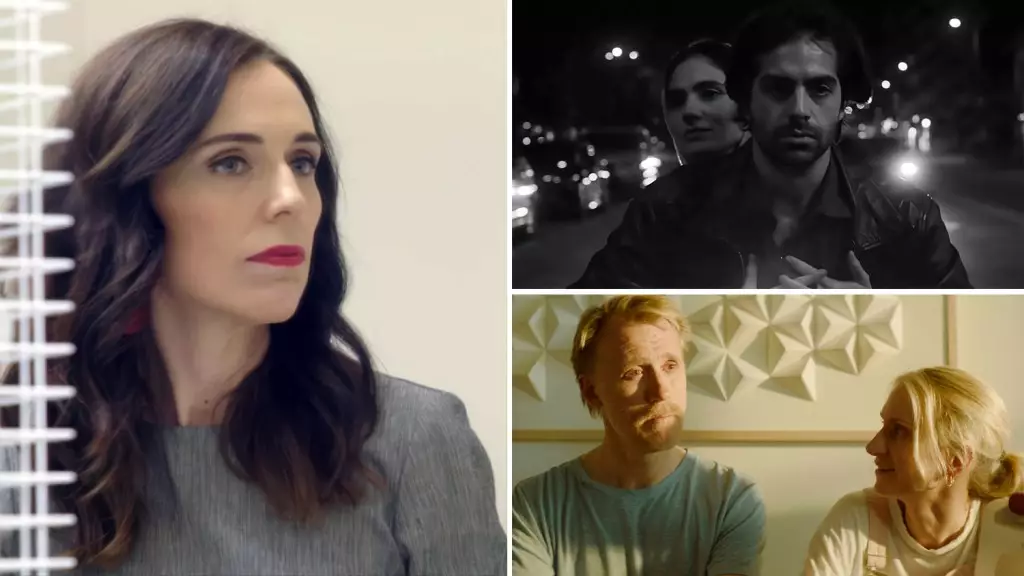The film industry is in a perpetual state of evolution, particularly in the realm of documentary filmmaking, where the power of storytelling intertwines with real-world issues. One such compelling narrative is brought to the forefront by Magnolia Pictures with their latest release, *Prime Minister*. This film, which recently garnered the Sundance Audience Award, creates a poignant dialogue around leadership, motherhood, and resilience in the face of unparalleled crises. It chronicles the journey of Jacinda Ardern, the former Prime Minister of New Zealand, who not only guided her country through the pandemic but also navigated the delicate balance of personal challenges—becoming a mother while in office. Directed by the talented Michelle Walshe and Lindsay Utz, *Prime Minister* pushes us to reflect on the multidimensional lives our leaders lead, often sitting at the intersection of politics, policy, and personal sacrifice.
Jacinda Ardern’s notable accomplishments illuminate the transformative potential of compassionate leadership. From addressing gun control following a devastating mass shooting to becoming a staunch advocate for climate change, Ardern’s tenure is emblematic of hope and progress within governmental practice. As we explore the implications of her policies, we are prompted to question what true leadership entails, especially for women who often face dual pressures of public service and familial responsibilities. The documentary serves not just as a portrayal of a political figure but as an exploration of the broader cultural narratives around women in power.
Dramatizing the Wild West: Unraveling *The Unholy Trinity*
Shifting to the realm of fictional storytelling, *The Unholy Trinity*, directed by Richard Gray, presents a different but equally fascinating dimension of cinema. This Western, featuring Academy Award-winning actors Samuel L. Jackson and Pierce Brosnan, brings attention to the often-tough morality of frontier life in 1870s Montana. The narrative unfolds through the eyes of Henry, a young man challenged to confront his dire circumstances and navigate familial obligations tangled in a web of betrayal and violence.
In a cinema landscape rife with superhero tales and franchise dominance, the choice to embrace a classic Western structure speaks volumes about the desire for storytelling that connects with America’s rugged heritage. This genre often serves as a mirror to our current societal dilemmas, reflecting themes such as justice, retribution, and the human condition. As Henry wrestles with his conscience under the direct influence of his estranged father, the film becomes not merely a tale of revenge but a broader commentary on the consequences of our choices and the repercussions of betrayal.
Expanding Global Narratives: The Significance of International Films
Alongside domestic productions, the specialty box office also showcases international filmmaking, expanding our perspectives on divergent cultural narratives. *Tatami*, a sports drama premiering in Venice and focusing on real Iranian athletes’ struggles against authoritarianism, exemplifies this trend. The story centers on a young judoka caught between her ambitions and the stifling grip of an oppressive regime. The film captures a stark reality faced by many young women worldwide, grappling with societal expectations and the pursuit of personal dreams.
Films like *Tatami* not only entertain but also educate audiences on vital global issues, offering insights into the nuances of life in different cultural contexts. By sharing these narratives, filmmakers encourage a broader understanding of the triumphs and challenges experienced outside Western spheres, urging viewers to empathize with perspectives that may be drastically different from their own.
Documentaries and Their Cultural Footprints
The documentary genre continues to carve its niche with releases like *Simple Minds: Everything Is Possible*, which chronicles the ongoing journey of the iconic Scottish rock band. Their evolution from local music icons to international stars embodies the undying spirit of artistry amidst changing social conditions. As the band gears up to tour North America, the documentary not only serves as a nostalgic look back at their success but also invites reflection on the cyclical nature of influence in the music industry.
Coupled with a documentary like *Meeting With Pol Pot*, which dares to delve deep into Cambodia’s troubled history, we see how diverse stories can paint a comprehensive picture of humanity’s capacity for resilience and its haunting shadows. Both films reflect how narratives of personal and collective struggle resonate with audiences, reminding us of the power of storytelling in shaping cultural consciousness.
Through this dynamic interplay of films released into the specialty box office, we witness the potential for cinema to engage audiences deeply, urging them to confront societal realities while exploring the human spirit’s capacity to endure, adapt, and thrive. From pivoting narratives on leadership to resilient tales of athletes and evocative documentaries about cultural phenomena, every screening offers an opportunity not just to watch but also to witness the unfolding complexities of the human experience.

